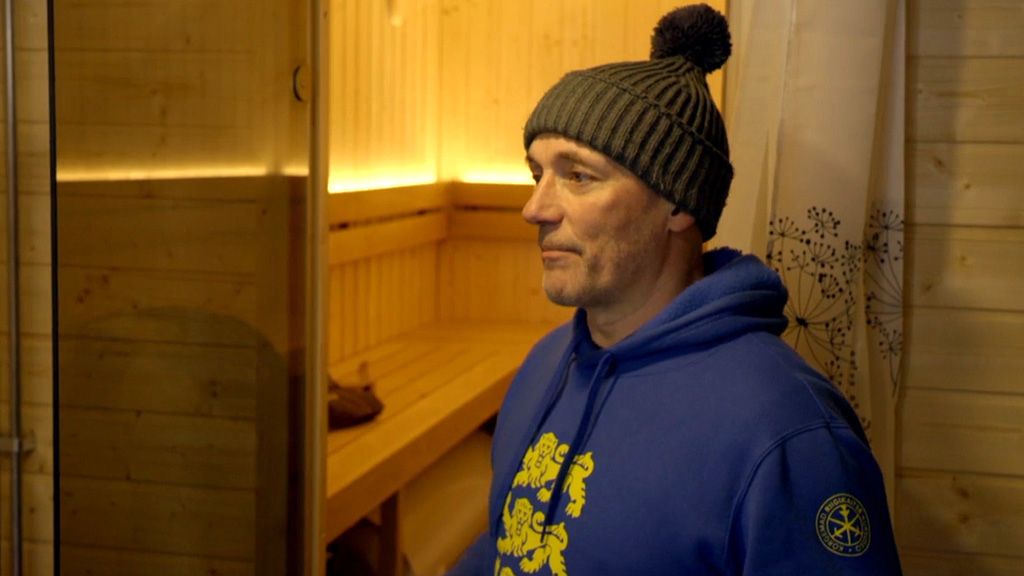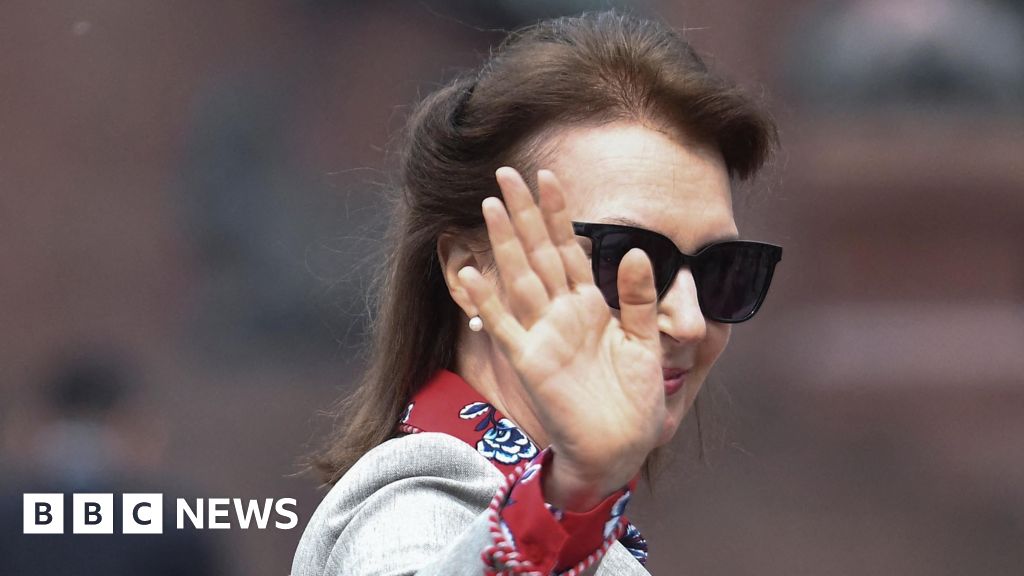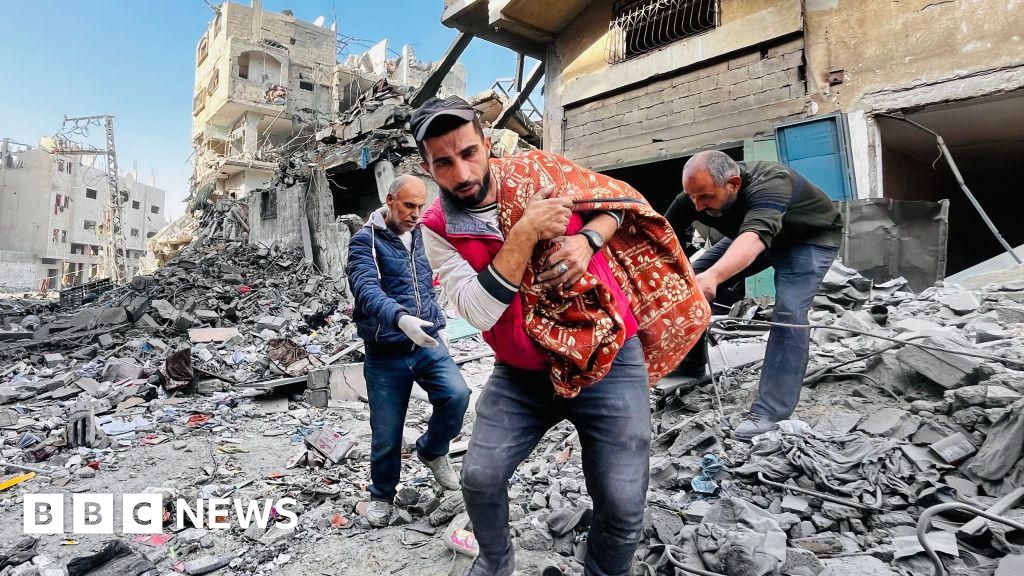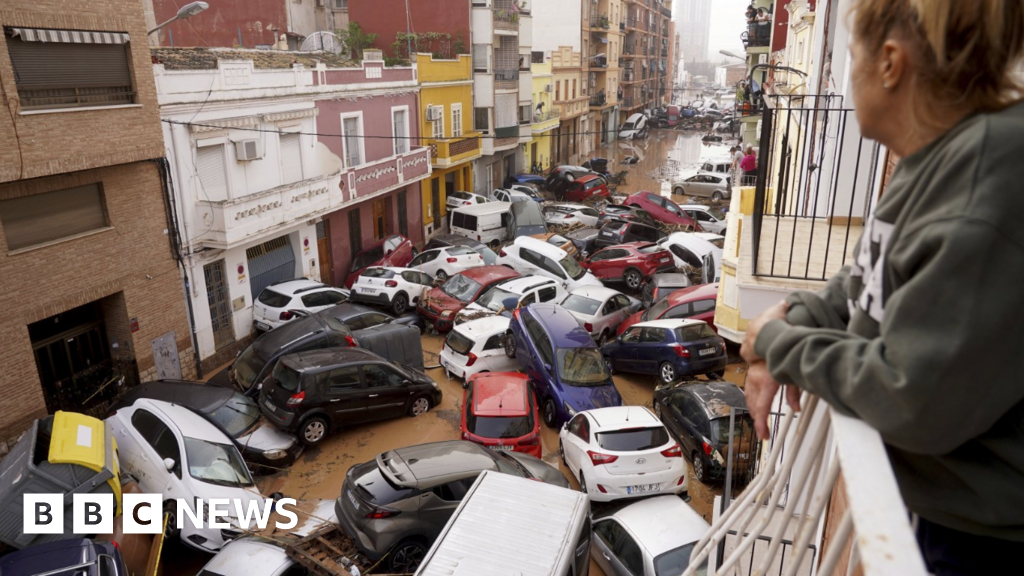ARTICLE AD BOX

By Katya Adler
Europe editor
Saunas for the front line... It's not the first fundraising slogan you'd expect to hear in connection with the war in Ukraine. You can understand Kyiv asking allies for long-range missiles and F-16 fighter jets. But saunas?
Yet ask for saunas is what the Ukrainian military did, according to Ilmar Raag, an Estonian film-maker and humanitarian worker who has made frequent trips to Ukraine.
Raag is now making crowd-funded mobile sauna units designed to serve hundreds of Ukrainian soldiers. They come complete with showers and washing machines for military uniforms, and are carefully camouflaged to keep them safe from Russian fire.
If you're after a custom-made sauna, it makes sense to ask an Estonian. Sauna culture is huge in the country. And it's as much about hygiene and a morale boost as getting toasty on chilly winter nights.
Estonia's soldiers rarely travel without a mobile sauna - including during recent missions in the Afghan desert and Lebanon. It's a military tradition that began almost 100 years ago during Estonia's fight against the Bolsheviks, when the national railway stationed a sauna train close to the front, so troops could bathe and disinfect after weeks in the trenches.
Raag says he heard about Ukrainian soldiers going days or even weeks without washing or taking off their boots, which explains why a front-line commander near Bakhmut told me - on Facetime - that the Estonian saunas were heaven-sent.
Ilmar Raag and Katya Adler call a Ukrainian commander on the front line
Many people living in EU and Nato countries on Vladimir Putin's doorstep are going above and beyond to help Ukraine.
Estonia and its Baltic neighbours, Latvia and Lithuania, were occupied by the Soviet Union for decades straight after World War Two. They say they feel Ukraine's pain at being invaded by Moscow.
They have also given or pledged more short-term aid relative to the size of their economy than any other nation, including the US and the UK - and only Norway surpasses them when long-term commitments factored in, according to the latest figures from Germany's respected Kiel Institute, which has been tracking all the contributions sent to Ukraine since the start of the war.
Gediminas Ivanauskas, Lithuania's national champion at "drifting" (a motorsport that involves oversteering and skidding at top speed) drove straight to Ukraine to help evacuate civilians from the very first day of Russia's invasion.
His eyes fill with tears when he tells me of the suffering there. His desire to help, his frustration with the often slow pace of international aid efforts and his expertise in all things motorised, have led him to crowd-fund dozens of vehicles, which he armour-plates in a small rented garage in rural Lithuania. Some he painstakingly equips to act as four-wheel drive ambulances for the Ukrainian military.
But Mindaugas Lietuvninkas, a volunteer sniper with Ukraine's International Brigade, has other motivations for helping the war effort.
A proud Lithuanian, he believes that by fighting in Ukraine, he's protecting his own country.
"We have to stop [Russia] now. In Ukraine," he told me vehemently as he packed his bags for another tour on the front line. Lietuvninkas thinks the Baltics could be next if Vladimir Putin is eventually successful against Kyiv.
Europe editor Katya Adler visits countries on Russia's western border where Vladimir Putin's war in Ukraine has reopened old wounds.
Watch the first episode on BBC One at 20:00 on Tuesday 12 September - or now on BBC iPlayer (UK only)
Lithuania is one of a number of Russian neighbours in the Western military alliance, Nato. All have warned loudly, for a long time, about the Kremlin's expansionist plans and Vladimir Putin's intentions to weaken and destabilise the West. For years allies treated them as borderline paranoid. No longer.
Russia's full-scale invasion of Ukraine has given Nato a new sense of purpose: a newly beefed-up presence in allied nations close to Russia, and keen, new members - right on Putin's doorstep.
Finland has a massive 800-mile (1,300km) land border with Russia. It always refused to join Nato for fear of antagonising the big bear next door. But Finns wholeheartedly changed their mind when they saw Russian troops marching into sovereign Ukraine. It's a seismic change for the country, which applied, together with Baltic power Sweden, to join the alliance soon after the war started.
This was a massive own goal by Moscow.
There's also been a notable uptick in the number of Finns signing up for weapons training. Military service is compulsory for young men and they then remain reservists for life. The large shadow cast over Finland by its Russian neighbour now feels more menacing, people tell me.
The war has hugely impacted Finnish businesses. Russian tourism was worth £500m ($630m) a year here until the war started. But like most EU countries bordering Russia or its great ally, Belarus, Finland has suspended travel visas for Russian nationals.
BBC
I cannot even think about the endgame if Russia wins and Putin grows his power. Who's next? Finland, Poland, Estonia, Lithuania?
In snow-covered Lapland, I met ski resort owner Ville Aho in his chalet with a view towards Russia's mountains. He tells me that on a one-to-one basis he struck up great friendships with Russian visitors over the years - but he doesn't want them back now. He says he wishes ordinary Russians, especially those living outside their country, would speak up far louder against the war.
Visibly moved when discussing Ukraine, he insists that none of us can afford to become disengaged or disinterested as the war drags bloodily on.
"I cannot even think about the endgame if Russia wins and Putin grows his power. Who's next? Finland, Poland, Estonia, Lithuania? He will not stop voluntarily in Ukraine. But this must all stop in Ukraine."
The Russian president doesn't only favour conventional warfare. Cyber-attacks or disinformation campaigns against the West are often blamed on Moscow. But attacking any of the countries Aho mentioned militarily would be a huge gamble for Vladimir Putin.
All other Nato members, including nuclear powers the US, UK and France, could come to their aid. But there is no iron-clad guarantee of this - ultimately it would be up to each country to decide how to respond.
And that leaves countries bordering Russia, which, like Latvia, have large ethnic Russian populations, feeling nervous.
Latvia's second city, Daugavpils, lies 25km (16 miles) from Belarus, and 120km from Russia itself. Eight out of 10 people living there speak Russian, not Latvian, at home. Most were educated in Russian-speaking schools in Latvia. They have traditionally received their news from Russian TV, radio or news websites.
Ethnic Russians in Daugavpils refused to answer when I asked if Ukraine was the victim in this war
I immediately noticed the absence of Ukrainian flags in the city. In the rest of the country you often see them fluttering as a sign of solidarity from school buildings, town halls and shop fronts. While Latvian Russians are not all pro-Putin by any means, the people I met on the street didn't want to discuss the war. They refused to answer when I asked if they viewed Russia as the aggressor and Ukraine as the victim.
Latvia frets Vladimir Putin could attempt to "rescue" the ethnic Russians here, as it was one of the pretexts he gave for Russian armed groups seizing parts of Ukraine's Donbas region, close to the border with Russia, back in 2014.
In an attempt to cut off ethnic Russians from what it views as Russian propaganda, Latvia's government has now banned Russian TV channels. It has also put an end to Russian-language schooling. Remaining Soviet-era monuments have been ripped down.
But Latvia is treading a painfully delicate line. The new policies are aimed at better integrating ethnic Russians, but according to critics they're also an attempt at forcing citizens to share the government's Western-facing outlook. This risks alienating many ethnic Russians altogether, they warn - even driving them into Vladimir Putin's arms.
These complexities and sensitivities are likely to last even after the war in Ukraine ends.
All told, I travelled 1,500 miles to meet people Living Next Door to Putin - the title given to a two-part documentary series my team and I filmed for BBC television.
Norwegian conscripts are often posted to serve as guards on the Russian border
From the south of Poland, up to the northern tip of Norway, what struck me above all was just how wide, deep and personal the impact of the war in Ukraine is, far from the front line.
And the future is not clear at all.
So much will depend on how this conflict ends. But after that, what kind of relationship could we, or should we, have with Russia? What about co-operation and trust?
These aren't just questions for the countries I visited that share a border and so much history with Russia. It's something that all of Europe and every one of Ukraine's allies needs to think about. Very carefully.

 1 year ago
12
1 year ago
12








 English (US)
English (US)